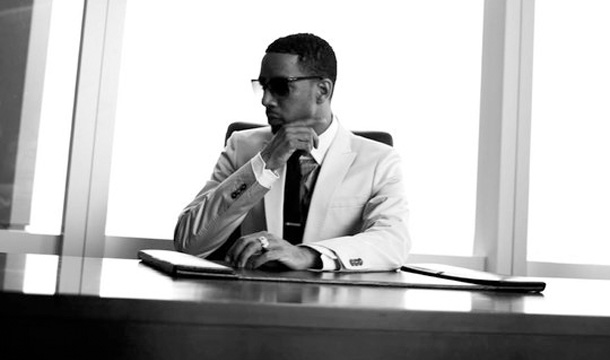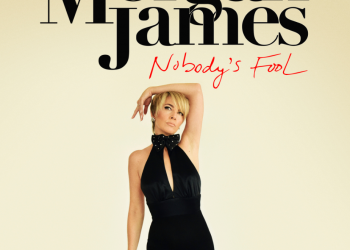It seems a million dollars just isn’t enough for the man who recently won a case to secure the reward put up by Ryan Leslie. According to reports, Armin Augstein has filed a demand for interest on top of the million, claiming he spent over two years fighting the music entertainer for the bounty.
Last month, a New York court ordered Ryan Leslie to pay Augstein $1 million for returning his laptop after allegedly finding it in Germany in 2010.
Now Augstein has filed papers in Manhattan Federal Court, demanding an additional $180,000 in interest.
Leslie expressed his outrage over the court’s decision during a recent gig by setting fire to a newspaper which had published coverage of the case.
What would you do if someone offered you a million dollars? Most of us can only dream about such an opportunity, but for one man, it’s become reality—and a nightmare. Allen Ray Hughes was promised $1 million by Grammy-nominated artist Ryan Leslie in exchange for returning his laptop stolen from a German airport. In return, Hughes has been pursuing legal action against Leslie since 2013 to collect the reward money he believes he is entitled to.
In this article, we’ll examine why Hughes feels he deserves interest on top of the original $1 million dollar reward and how his case has evolved over the years. We’ll also explore what implications this could have for both parties involved should the court decide in favor of Hughes’ request.
This story serves as an example of just how far people are willing to go when they feel their rights have been violated—even when millions of dollars are at stake. Read on to find out more about this incredible saga between musician Ryan Leslie and Allen Ray Hughes!
Background Of The Case
In 2008, Ryan Leslie promised a fan named Armin Augstein $1 million if he could find his stolen laptop. After months of searching, Augstein eventually found the computer and contacted Leslie for his reward. To everyone’s surprise, however, Leslie refused to pay up.
Augstein then took Leslie to court in 2011, demanding that the singer-songwriter fulfill his promise and award him the money as agreed. During the hearing, it was revealed that Lesie had already paid out thousands of dollars from his own pocket in order to track down the missing laptop. In spite of this evidence though, Leslie still insisted on not paying Augstein any more than what he had already given him.
Unable to come to an agreement outside of court, both parties thus decided to let a jury decide their fate. The jurors finally determined that while Leslie did owe Augstein some money for finding his laptop over three years prior, they couldn’t compel him to pay out such a large sum without proof that there was an actual contract between them. As a result, after much deliberation and debate, all Augstein received were legal fees instead of the million dollar prize he originally thought he’d get.
Court’s Ruling
The jury’s decision was that Leslie owed Augstein some money for finding the laptop, but they could not force him to pay out such a large sum without proof of an actual contract between them. In their ruling, the court found that there had been no written agreement or understanding regarding what would happen if Augstein succeeded in his mission. Therefore, all Augstein received was reimbursement for legal fees and other related expenses instead of the million dollar reward he thought he’d get.
Though disappointed by this outcome, it is important to note that this case still set an important precedent for similar matters in the future when it comes to honoring verbal agreements. While it may be difficult to prove exactly what someone said and meant at any given time, courts will now take into consideration statements made outside of writing as long as certain conditions are met. This includes ensuring that both parties knew what they were agreeing to before making any type of promise or commitment.
Augstein’s case demonstrates how promises made verbally can sometimes hold more weight than those agreed on paper; however, it also shows why having something in writing is essential whenever possible. Without sufficient evidence of a binding arrangement between two people, situations like these become incredibly tricky and hard to sort through – even with a judge present!
Conclusion
In conclusion, this case demonstrated the importance of contract law and how it can protect individuals from financial loss. This ruling highlights the power of contracts in ensuring that parties are held to their promises. As a result, any person entering into an agreement should be fully aware of its terms and conditions before signing.
I found this case to be particularly interesting because it dealt with a large sum of money and highlighted the need for strong contractual agreements when dealing with high stakes cases like these. It’s clear there was some confusion over what was promised and whether or not those conditions had been met; however, ultimately it was decided that the plaintiff deserved his reward as per the original contract.
Ultimately, this case serves as an important reminder to always read through your contracts carefully and make sure you understand all the language included within them before signing anything. Doing so could save you from having to go through a lengthy court battle just to get what you were originally promised!
Since 2005, Singersroom has been the voice of R&B around the world. Connect with us via social media below.








